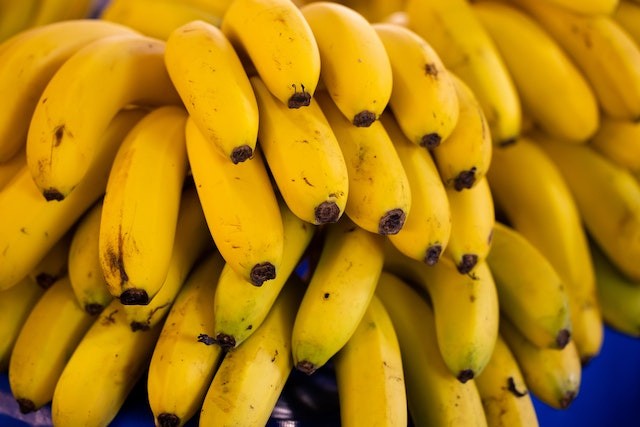
Potassium is an essential mineral in our body. The condition can be life-threatening when one has a low potassium level.
Can You Die From Low Potassium?
Hypokalemia is when one has a lower-than-usual potassium level in the blood. Potassium aids in the transmission of electrical information to your body's cells. It is essential for the healthy operation of heart muscle cells and nerve and muscle cells in general, per the Mayo Clinic.
The blood potassium level should range between 3.6 and 5.2 millimoles per liter (mmol/L). When one's potassium level drops to less than 2.5 mmol/L, it can be hazardous and necessitate immediate medical intervention.
Lack of potassium can result in irregular heart rhythm, weakness and muscle spasms, paralysis, and even death. These problems can potentially worsen existing illnesses and impair vital biological processes, according to Personalabs.
Potassium levels affect your body's general health, much like other nutrients. It promotes healthy blood circulation, maintains fluid and acid-base balance, controls muscular contractions, helps transmit neural signals, and guarantees regular digestion.
Three million people per year experience sudden cardiac death worldwide. These fatalities frequently result from a complicated interaction between substrates and triggers. One such trigger is disturbed potassium homeostasis in cardiac cells, according to the National Library of Medicine.
To ensure that one is safe from hypokalemia, one has to take a potassium blood test. The doctor will most likely request it if they observe low potassium symptoms.
ALSO READ : Genetic Mechanisms Play a Role in Dietary Preference; Sweet Tooth Could Be Blamed to DNA
Symptoms and Causes of Low Potassium (Hypokalemia)
Depending on your deficit is severity, various people have distinct hypokalemia symptoms. Mild hypokalemia might cause you to experience tingling in your extremities, constipation, muscular spasms, and constant fatigue. On the other hand, a severe potassium deficiency results in muscle weakness, hypotension, cardiac arrhythmias, extreme thirst, frequent urination, and dizziness.
There can be no symptoms when potassium levels temporarily drop. For instance, if you work out hard and sweat a lot, your potassium levels may return to normal after eating or consuming electrolytes before any harm is done.
Severe deficits, however, can be fatal. Potassium insufficiency symptoms include the following, per Healthline:
- Extreme exhaustion
- Muscle cramps
- Tremors
- Spasms
- Vomiting
- Nausea
- Indigestion
- Unsteady heartbeat
There are numerous causes of low potassium (hypokalemia), per the Mayo Clinic. The most frequent reason is increased potassium loss in urine due to prescription drugs that make you urinate more frequently. Diuretics or water pills are commonly administered to patients with excessive blood pressure or heart disease.
Additionally, significant potassium loss from the digestive tract might be brought on by vomiting, diarrhea, or both. Not acquiring enough potassium in your diet can occasionally lead to low potassium levels.
Here are some causes of low potassium:
- Excessive alcohol consumption (excessive)
- Long-term renal disease
- Diabetic ketone toxaemia
- Vomiting
- Diuretics (dissolvers of water retention)
- Constant usage of laxatives
- Prolonged perspiration
- A lack of folic acid
- Primary adrenocortical
- Some usage of antibiotics
- Diarrhea
The body doesn't produce potassium naturally, so consuming the right amount of potassium-rich foods is essential. According to Harvard T.H. Chan School of Public Health, potassium is abundant in many food and supplement.
It can be found in dried fruits like raisins and apricots, beans, lentils, potatoes, spinach, broccoli, beet greens, avocado, bananas, cantaloupe, oranges, and tomatoes. To increase their potassium level, one can also consume dairy and plant milk (soy and almond), yogurt, cashews, chicken, and salmon.
RELATED ARTICLE : COVID-19 Booster Shots: Is Your Choice of Vaccine Important? Does It Make a Difference? Experts Explain
Check out more news and information on Medicine & Health in Science Times.
© 2026 ScienceTimes.com All rights reserved. Do not reproduce without permission. The window to the world of Science Times.











